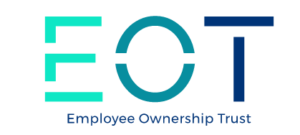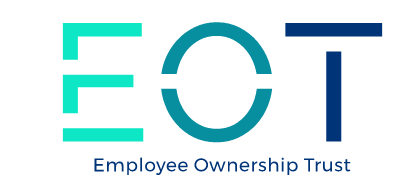Benefits of Employee Ownership Trusts
Unlocking the Benefits: Why Employee Ownership Trusts Are Advantageous
Employee ownership trusts (EOTs) are surging in popularity among UK companies. Under these structures, company shares are transferred to a trust that holds them on behalf of employees.
While employees don’t directly own the shares, they become beneficiaries entitled to financial distributions and a stake in the company’s growth. But what makes this model so appealing? What benefits can employee ownership trusts actually provide compared to other ownership approaches?



But what makes this model so appealing?
What benefits can employee ownership trusts actually provide compared to other ownership approaches? This in-depth guide covers the compelling advantages EOTs offer in multiple areas including:
- Increased employee engagement and motivation
- Enhanced productivity and performance
- Improved corporate governance
- Facilitating succession planning
- Tax incentives exclusive to EOTs
// Benefits of an EOT
What Are Employee Ownership Trusts?
Before examining the benefits, it’s helpful to outline what an employee ownership trust entails:
- Company founders or shareholders transfer some or all of their shares into a legal trust.
- The trust holds the shares on behalf of employees who become beneficiaries.
- Trustees are appointed to manage voting rights associated with the shares.
- Employees do not directly own shares but gain an equitable stake and interest in the company.
- Employees share in profits distributed by the trust without needing to purchase shares.
This trust-based mechanism creates a unique employee ownership structure different than models like ESOPs and direct ownership.
Some key advantages of an EOT
Key Advantage 1: Increased Employee Engagement and Motivation
Gaining part ownership in their company strongly empowers employees. By granting equitable rights to shares, EOTs drive higher engagement and motivation through:
Fostering Employee Commitment
When employees become owners, they adopt a deeper commitment to the company and a sense of shared purpose. Their goals align more closely with organizational success.
This commitment manifests in higher discretionary effort, willingness to go beyond job requirements, and ambition to see the company thrive.
Fuelling Meaning and Fulfilment
Studies show employee ownership boosts workforce satisfaction and a sense of meaning. Employees feel invested both financially and psychologically when they have an ownership stake.
Surveys across employee-owned companies reveal higher job satisfaction and feelings of purpose. Employees take pride in co-owning their workplace.
Driving Productivity and Innovation
Committed, fulfilled employees translate to higher workplace productivity. Employees actively seek innovations and process improvements that will benefit the company they co-own.
Creative thinking flourishes when employees feel purpose, self-determination, and shared success with their employer.
Improving Retention and Loyalty
The Centre for Employee Ownership reports turnover rates up to 50% lower at employee-owned firms. Ownership fosters loyalty, reducing turnover costs and retaining institutional knowledge.
When employees are also owners, they are less likely to leave and take that valuable experience elsewhere. Their destinies feel linked to their company’s.
For all these reasons, EOTs powerfully enhance workforce engagement, satisfaction, and motivation compared to non-owned companies. Employees invest themselves in collective success.
Key Advantage 2: Improved Company Productivity and Performance
The intrinsic motivation sparked by employee ownership also translates into positive gains for overall company productivity and performance:
Increased Productivity
According to research by Matrix Evidence, companies converting to employee ownership averaged a 4.4% higher productivity increase over the ensuing three years.
By incentivizing workforce effort and participation, EOT companies benefit from greater productivity driven by their highly motivated employee-owners.
Revenue Growth
A Cass Business School study found revenue growth was higher at major employee-owned companies versus competitors. Engaged owners focused on top-line growth.
once transitions
Profitability
Higher productivity and revenues in turn lead to greater profitability. A Rutgers study evidenced that majority employee-owned firms were significantly more profitable than non-employee-owned competitors.
Shareholder Returns
Shareholder returns are also superior at employee-owned firms. Research by the Employee Ownership Association reveals returns higher on average by 14% at UK EOT companies.
Increased Innovation
When employees feel empowered as owners, they contribute more ideas and innovations to drive performance. Creative solutions flow more readily in an ownership culture.
Across metrics, the collective drive of employee-owners spurs gains for the company as a whole. EOTs unlock workforce contributions to advance results.
Key Advantage 3: Improved Corporate Governance
By granting the workforce an ownership voice, EOTs structurally enable stronger governance:
Workforce Perspectives Injected
Through trustee engagement and representation bodies, EOT companies gain employee viewpoints into major decisions and strategy. This enhances governance quality.
Balanced Short and Long-Term Focus
Employee-owners take a more balanced view between short-term profits and long-term health. They provide a counterbalance to impulses for quick returns over sustainable growth.
Mission Preservation
EOT companies are better positioned to preserve their core mission and values with employees involved in governance. Employee-owners sustain the cultural DNA.
Risk Mitigation
With continued employee ownership, EOT companies experience less risk of pressures that could undermine workforce benefits or the company’s purpose down the line.
By giving employees representation and influence in oversight, EOTs structurally improve corporate governance to be more balanced, sustainable, and risk-averse.
Key Advantage 4: Facilitating Succession Planning and Leadership Transition
For founders approaching retirement or seeking an exit, transferring shares into an EOT provides an orderly transition mechanism:
Tax Efficiencies
Due to tax reliefs exclusive to EOTs, founders can transfer ownership at lower capital gains cost compared to other sales or transfers. This provides a tax-optimized exit.
Retaining Company Legacy and Culture
Instead of a sale to external buyers, EOTs enable founders to ensure their company’s legacy and culture are preserved within the organization under employee stewardship.
Structured Transition Process
The staged share transfers used to establish EOTs allow founders to gradually transition control on their own timetable. This smoothes leadership succession.
Aligning Successor Incentives
With employees as owners, the successors and next generation of leadership share the same vested interests in upholding the company’s success. This powerfully aligns incentives.
For founders looking to retire or move on while securing their company’s future, transitioning to an EOT can be an optimal solution.
Key Advantage 5: Tax Incentives Exclusive to EOTs
The UK provides targeted tax reliefs to encourage employee ownership trusts:
Income Tax Relief
When founders transfer shares into an EOT, they enjoy income tax relief of up to £3,600 annually based on the value of shares given. This reduces income tax costs.
Capital Gains Tax Relief
Transferring shares may also qualify for up to £50,000 in capital gains tax relief. This allows founders to realize gains at a lower tax cost.
Inheritance Tax Relief
EOT-owned shares can qualify for up to 100% inheritance tax relief after 2 years. This allows founders to transfer wealth efficiently.
Corporation Tax Relief
Companies also benefit from corporation tax relief on bonuses paid to employees through an EOT up to £3,000 annually per employee.
These generous reliefs make EOTs a highly tax-advantaged employee ownership structure unique within the UK.
Key Takeaways on EOT Benefits
The advantages covered underscore why employee ownership trusts offer a compelling model:
- EOTs strongly boost workforce engagement, satisfaction, and motivation through shared ownership.
- By structurally empowering employee-owners, EOTs drive higher productivity, performance, innovation, and revenues.
- Employee representation enhances corporate governance to be more balanced and sustainable long-term.
- EOTs enable structured succession planning and leadership transition for retiring founders.
- Tax incentives like income, capital gains, and inheritance reliefs make EOTs highly efficient.
The proof points across motivation, productivity, governance, succession planning, and tax optimization give EOTs a strong edge over other approaches.
Conclusion: A Formula for Shared Success
For both employees and employers seeking closer strategic alignment, employee ownership trusts offer a compelling solution.
The unique trust model grants employees the stake, voice, and incentives of ownership while providing beneficial tax treatment exclusive to EOTs.
The result is shared prosperity between a company and its employee-owners, as both work toward the same goal of long-term growth and stability.
But securing the benefits relies on thoughtful implementation, governance, and cultural integration to ensure the EOT achieves its full motivational and financial potential.
By taking an educated approach, companies can optimize this powerful employee ownership structure to boost their workforce, performance, and sustainability for the future.
The numbers don’t lie – the sizable advantages strongly demonstrate why interest in EOTs keeps growing. If seeking engaged employee-owners and collaborative success, strongly consider joining the EOT momentum.
If you’re considering establishing an employee ownership trust, the team at UKEOT.co.uk can guide you through the entire process.
With decades of combined experience advising on EOT transitions, our experts are perfectly positioned to handle the end-to-end implementation and operation of an employee ownership trust for your organisation.
We can assist with:
- Assessing if an EOT is right for your goals and business structure
- Managing the legal setup and meeting filing requirements
- Drafting a tailored trust deed and appointing independent trustees
- Transferring company shares into the employee ownership trust
- Valuing the business and defining profit allocation mechanisms
- Communicating details to employees and establishing representation
- Providing ongoing administration, compliance, and guidance after launch
An EOT provides a powerful opportunity to engage your workforce and sustain your legacy. But realizing the benefits involves navigating complex legal, financial, and cultural considerations.
Don’t go it alone – leverage our full range of EOT services today. Get in touch for an initial consultation, or explore our website for useful resources to inform your transition to an employee ownership trust.
With UKEOT.co.uk’s expertise, you can implement an EOT with confidence, transfer ownership smoothly, and operate a productive employee-owned business. Contact us to make employee ownership a reality.
.






